
Gemini vs Coinbase - Key Differences and Similarities

The world of cryptocurrency is booming, and two of the leading cryptocurrency exchanges that have emerged in this arena are Gemini and Coinbase.
Both platforms offer users a gateway into the crypto market, but they each have their unique features and offerings.
This post will explore the key differences and similarities between Gemini and Coinbase, delving into aspects like fees, security, cryptocurrencies available, user interface, and customer support.
Gemini Overview
Gemini is a prominent cryptocurrency exchange founded in 2015 by Tyler and Cameron Winklevoss, commonly referred to as the Winklevoss twins.
Based in New York, Gemini emphasizes stringent security measures and a commitment to regulatory compliance. This focus has earned it a reputation as one of the most trustworthy platforms in the industry.
With a user-friendly interface suitable for both novices and professional traders, Gemini offers a variety of popular cryptocurrencies for trade. Its position as a New York trust company under the oversight of the New York State Department of Financial Services (NYSDFS) ensures a robust regulatory framework, boosting user confidence.
Coinbase Overview
Founded in 2012 by Brian Armstrong and Fred Ehrsam, Coinbase stands as one of the pioneering platforms in the cryptocurrency exchange space.
With its headquarters in San Francisco, California, Coinbase has rapidly expanded its global presence, catering to millions of users. Recognized for its beginner-friendly interface, Coinbase serves as an ideal gateway for those venturing into the crypto world.
Beyond its trading platform, it offers a plethora of tools and educational resources, bolstering its commitment to user empowerment. With stringent security measures and regulatory adherence, Coinbase has solidified its reputation as a reliable and trusted crypto exchange.
Gemini vs Coinbase - Key Differences
When delving deeper into the distinct characteristics of Gemini and Coinbase, it becomes evident that while they share some similarities, they also have stark contrasts in specific areas.
Gemini and Coinbase Top Features
Gemini: Gemini boasts features like Gemini Earn, where users can accumulate interest on their cryptocurrency balances, and Gemini Pay, which facilitates cryptocurrency-based payments at several merchants.
Additionally, they have a proactive approach to ensuring only compliant and secure tokens are listed.
Coinbase: Coinbase, on the other hand, shines with features such as staking, where users can earn rewards by supporting specific cryptocurrencies.
They also present the "Coinbase Learn" initiative, offering users a chance to earn crypto as they grasp its intricacies. Their API for developers is notably advanced, aiding in diverse integrations.
Gemini and Coinbase Fees
Gemini: Gemini's fee structure can be considered complex. They charge both a convenience fee and a transaction fee. These can fluctuate based on transaction amounts and your trading volume, potentially becoming significant for smaller trades.
Fees - Flat-rate tiered structure for trades $200 and less; 1.49% for trades over $200 (Check Latest Offers)
Coinbase: Coinbase's fee model has often been a topic of debate, mainly due to its high charges, especially when purchasing directly through the primary platform. For traders looking for better rates, shifting to Coinbase Pro is advisable.
Fees - 0%-0.40% for makers; 0.05%-0.60% for takers
User Experience
Gemini: Gemini's platform is beautifully designed with an intuitive interface. They aim to accommodate both new entrants and professional traders, making navigation smooth and straightforward. Their mobile application is also seamlessly built, offering a consistent trading experience on the go.
Coinbase: Coinbase's user experience is one of its top selling points. Its simplistic design ensures that those new to crypto can quickly understand and make trades. The mobile application, just like Gemini's, offers a robust trading experience, replete with all essential features.
Security with Gemini and Coinbase
Gemini: Gemini doesn't compromise on security. They've instituted top-notch measures like hardware security modules and the storage of most customer funds in offline cold storage. Their emphasis on regulatory compliance also bolsters their security credentials.
Coinbase: Coinbase matches Gemini's security ardor, ensuring the majority of customer funds are stored offline. Their data encryption standards are rigorous. A cherry on top is the FDIC insurance on U.S. customer fiat funds up to $250,000, providing an added layer of safety.
Gemini and Coinbase Support
Gemini: While they offer a comprehensive help center and email support, response times can vary, sometimes leading to longer wait periods for complex issues.
Coinbase: Coinbase's support structure is multifaceted, with a help center, email, and even phone support for specific urgent matters, like account compromises. However, due to their vast user base, response times can sometimes be longer than desired.
Similarities Between Gemini and Coinbase
Gemini and Coinbase, as industry frontrunners, naturally share several overlapping attributes that make them top choices for cryptocurrency enthusiasts worldwide.
Firstly, both exchanges have roots in the United States and are renowned for their commitment to regulatory compliance. This commitment ensures a layer of safety and trustworthiness not always present in the broader crypto exchange landscape. Secondly, both platforms prioritize user security.
From employing state-of-the-art encryption techniques to safeguarding the majority of user funds in offline cold storage, they go the extra mile to ensure assets remain protected.
Additionally, both exchanges have crafted user-friendly interfaces, catering to beginners while still retaining features that appeal to experienced traders. This balance strikes a chord with a broad spectrum of users.
Furthermore, both Gemini and Coinbase have taken significant strides in education and outreach, providing resources to help users understand the often complex world of crypto.
Lastly, their dedication to customer support, even if the mechanisms differ slightly, indicates a shared ethos: the user comes first. In a nutshell, these shared values and features make both platforms formidable and trusted entities in the crypto world.
Gemini vs Coinbase - Which One is Better?
Deciding between Gemini and Coinbase largely hinges on individual preferences and trading needs. For those who prioritize a rigorous approach to security and regulatory compliance, Gemini shines.
Its unique features like Gemini Earn and Gemini Pay offer added benefits to users. Meanwhile, Coinbase, with its expansive cryptocurrency offerings and beginner-centric approach, serves as an excellent gateway for those new to the crypto realm.
Additionally, its educational tools can be invaluable for novices. In truth, neither is definitively "better" than the other. It's about aligning with an exchange that resonates with your specific requirements and trading aspirations.
Frequently Asked Questions
Q1. What fiat currencies are supported by Gemini and Coinbase for deposits and withdrawals?
Both Gemini and Coinbase support major fiat currencies, including USD, EUR, and GBP. However, the availability might vary based on your geographical location.
Q2. Can I use both platforms in my country?
Both Gemini and Coinbase have a wide international reach, but availability can vary by country due to regulatory landscapes. It's best to check each platform's website for a list of supported countries.
Q3. Are there mobile apps for both exchanges?
Yes, both Gemini and Coinbase offer mobile apps available for both Android and iOS, ensuring trading on-the-go.
Q4. How do the staking rewards on Coinbase compare to the interest earned on Gemini Earn?
Staking rewards on Coinbase depend on the specific cryptocurrency being staked. Similarly, interest rates on Gemini Earn vary by crypto. It's essential to check the current rates on each platform.
Q5. Do both exchanges offer institutional trading solutions?
Yes, both Gemini and Coinbase cater to institutional traders, offering specialized services, bulk trading options, and more advanced trading features.
Q6. How do I transfer funds from Gemini to Coinbase, or vice versa?
You can transfer funds by withdrawing the desired cryptocurrency from one platform to the deposit address of the same cryptocurrency on the other platform. Ensure you're sending and receiving the same cryptocurrency to avoid loss.
Q7. Which exchange has a more diverse portfolio of altcoins?
While both platforms are expanding their offerings, Coinbase generally has a broader selection of altcoins compared to Gemini.
Q8. Are my funds insured on these platforms?
On Gemini, digital assets are insured. On Coinbase, U.S. customer fiat funds are FDIC insured up to $250,000. However, it's always important to use personal security measures and not rely solely on platform insurance.
Conclusion
Both Gemini and Coinbase stand tall in the crypto exchange landscape. Their prominence is well-deserved, given their commitment to providing secure and intuitive trading environments.
Coinbase shines when it comes to the diversity of its cryptocurrency offerings. If you have an eye for exploring a vast range of coins, then Coinbase seems to be the more fitting choice.
On the other hand, with Gemini, especially if you leverage the Gemini ActiveTrader, you could benefit from more favorable trading fees. While the fee difference between the two platforms isn't drastic, over extended periods, every bit counts in the world of crypto investing.
Disclaimer
The information provided on this website does not constitute investment advice, financial advice, trading advice, or any other sort of advice and you should not treat any of the website's content as such.
Token Metrics does not recommend that any cryptocurrency should be bought, sold, or held by you. Do conduct your own due diligence and consult your financial advisor before making any investment decisions.

.svg)

Create Your Free Token Metrics Account

.png)




%201.svg)
%201.svg)


%201.svg)



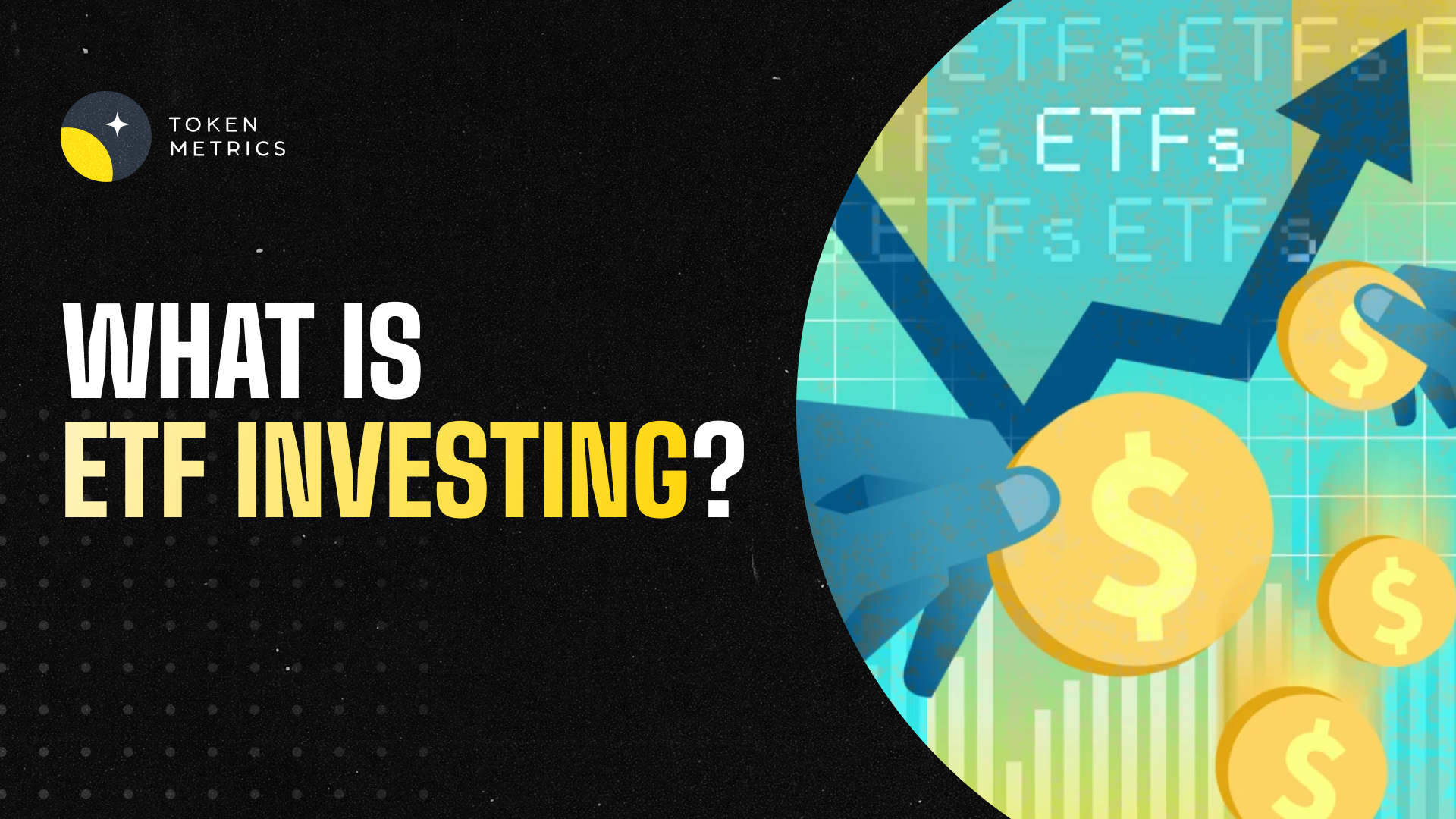

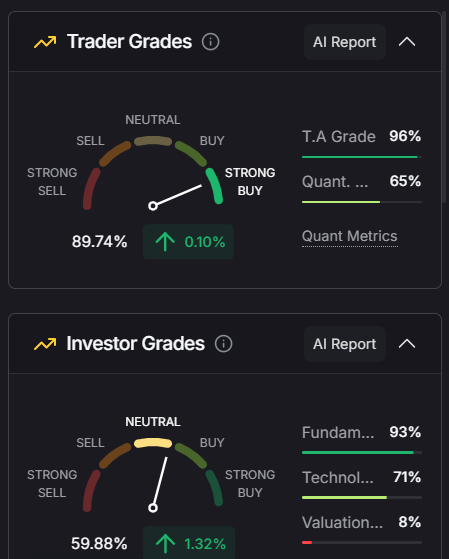

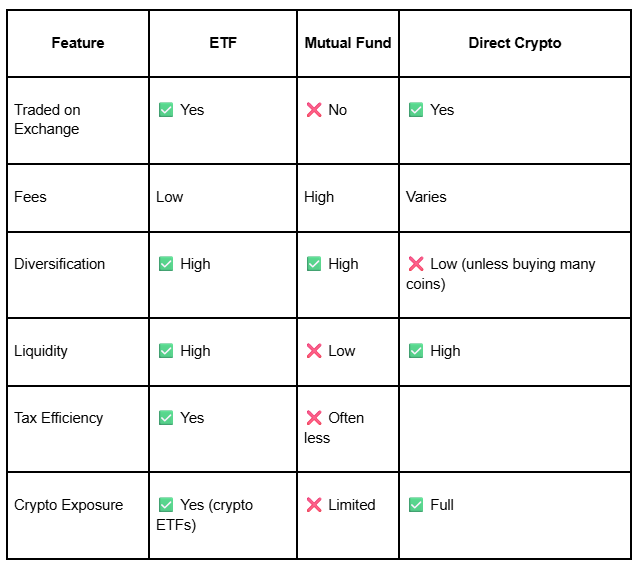
.png)

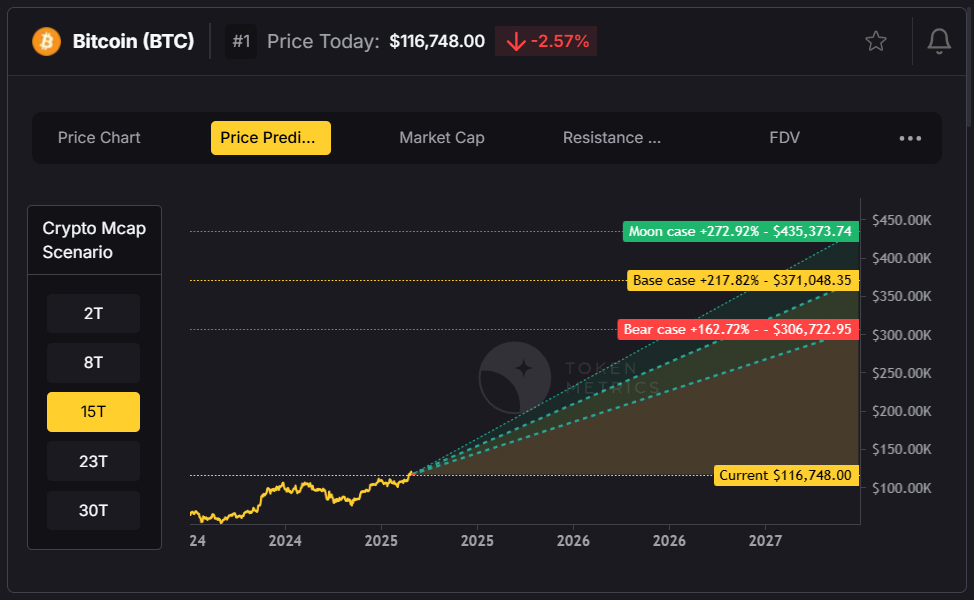

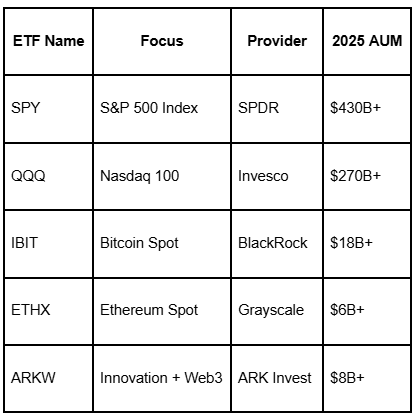
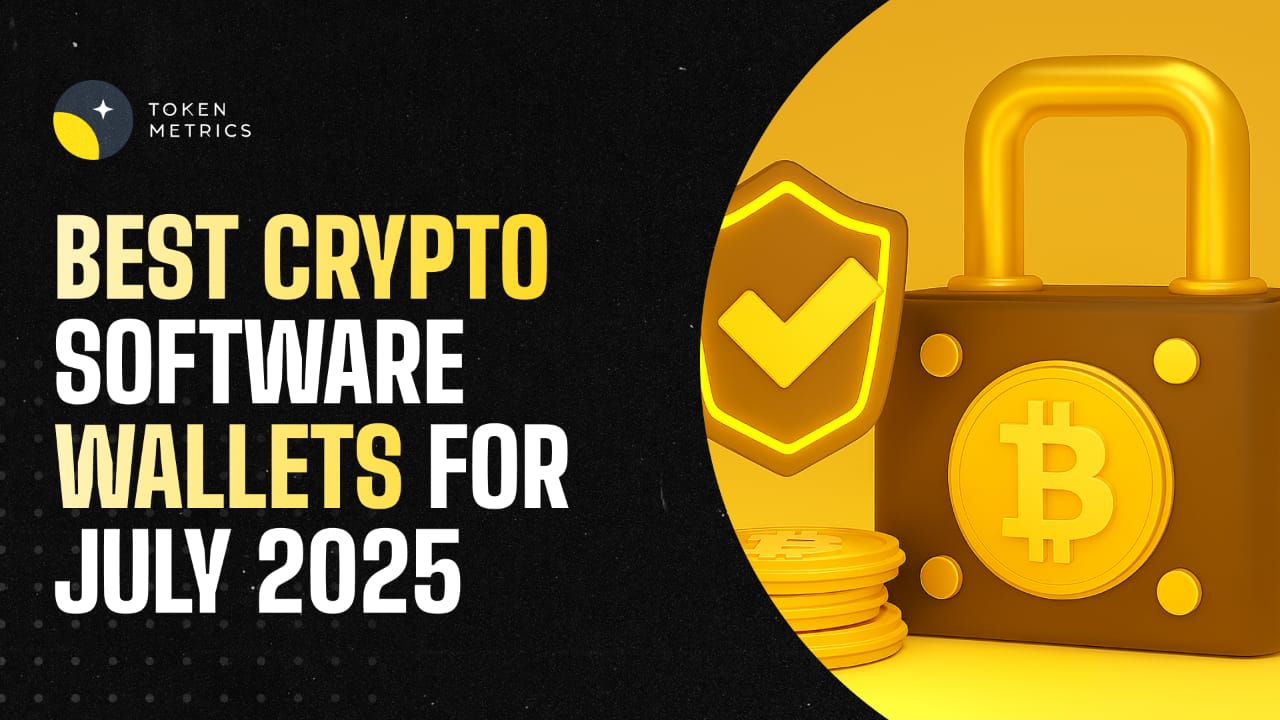



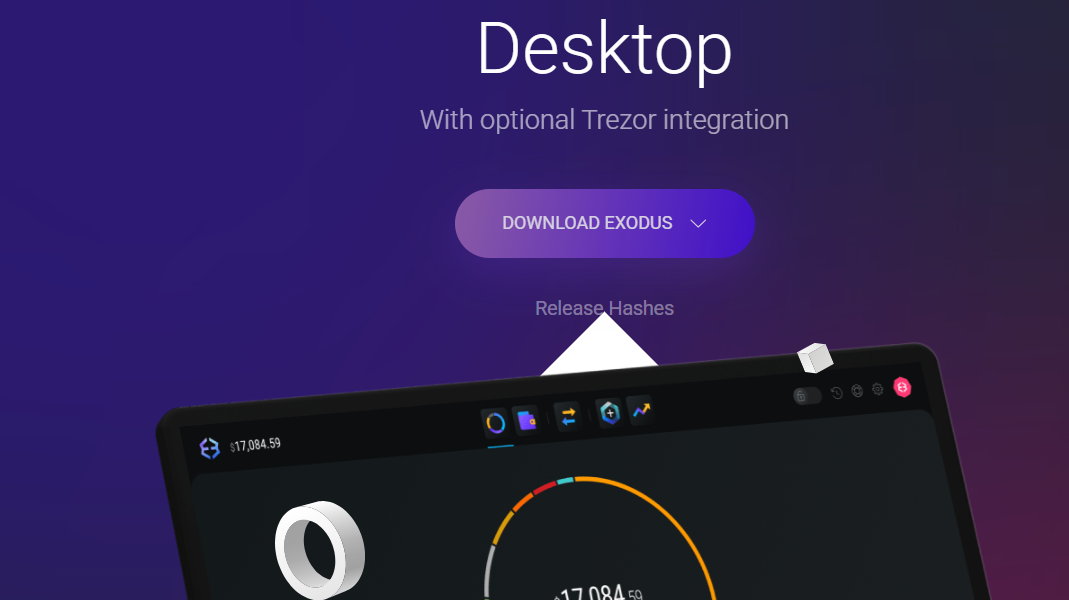



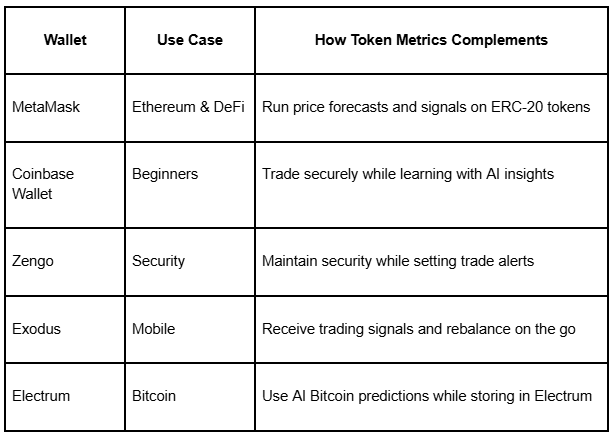




.svg)




.png)